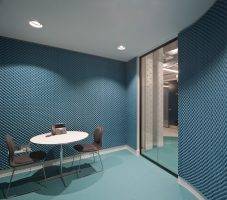November 16, 2016
Employers as well as workers behind the creation of the gig economy 0
 Employers and workers are both driving the creation of a temporary, independent workforce, but despite the benefits, there are some significant management challenges, claims two new EY surveys focusing on the gig economy. Among large organisations (100,000 employees or more) surveyed, 49 percent said they increased their use of gig workers in the last five years and 40 percent of organisations expect to increase their use of contingent workers in the next five years. One quarter expect 30 percent or more of their workforce to be contingent workers by 2020. On the employee side, the research shows more people are choosing to do contingent work; 73 percent of the 1,008 short-term contingent workers surveyed had positive reasons for their independent work arrangement, with only 20 percent saying they were short-term workers due to a lack of suitable full-time positions. Sixty-six percent believe the benefits of contingent working outweigh the downsides always or most of the time compared to just 6 percent who believe the opposite.
Employers and workers are both driving the creation of a temporary, independent workforce, but despite the benefits, there are some significant management challenges, claims two new EY surveys focusing on the gig economy. Among large organisations (100,000 employees or more) surveyed, 49 percent said they increased their use of gig workers in the last five years and 40 percent of organisations expect to increase their use of contingent workers in the next five years. One quarter expect 30 percent or more of their workforce to be contingent workers by 2020. On the employee side, the research shows more people are choosing to do contingent work; 73 percent of the 1,008 short-term contingent workers surveyed had positive reasons for their independent work arrangement, with only 20 percent saying they were short-term workers due to a lack of suitable full-time positions. Sixty-six percent believe the benefits of contingent working outweigh the downsides always or most of the time compared to just 6 percent who believe the opposite.






















































